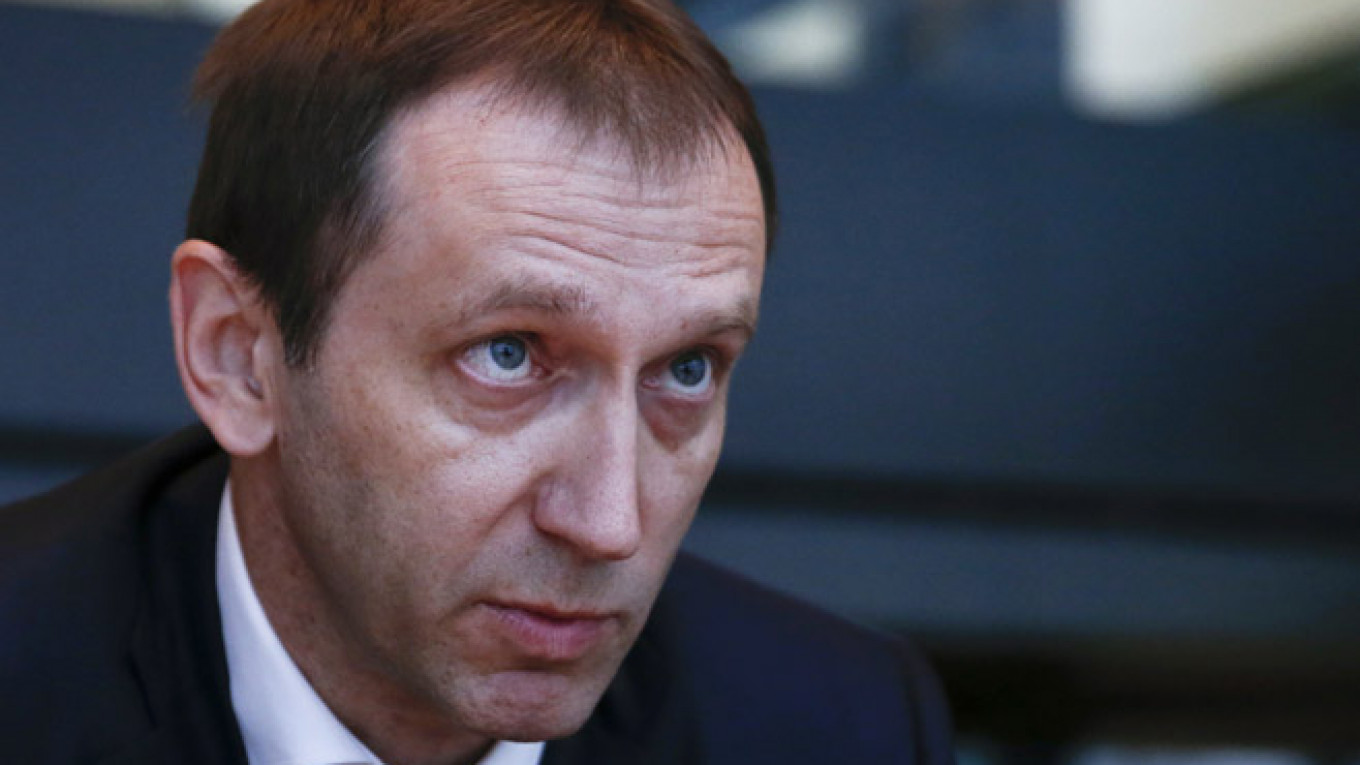Russia's Uralkali, the world's largest potash producer, cut its 2014 production forecast by 8 percent on Thursday, opting to focus on price rather than sales volume.
Prices of the fertilizer slumped almost a year ago after Uralkali quit a powerful trading alliance with Belarus in order to boost output.
"Our strategy is not 'volume over price' or 'price over volume', it is a revenue maximization strategy," Uralkali chief executive Dmitry Osipov told a conference call on first-quarter results.
Uralkali has cut its 2014 production forecast to 11 million tons from 12 million, Osipov said, adding: "We believe that, with these 11 million tons, we will achieve this goal [of revenue maximization]."
The so called "price over volume" strategy had allowed global potash producers to support prices for years before the system started to crack and was finally done for by Uralkali's breakup with Belaruskali.
"Since the potash market has reached a greater stability, the company is seeking to maximize its revenue through stimulating prices," Uralkali said.
It posted a 17 percent year-on-year increase in first-quarter revenue to $862 million on the back of production growth, albeit at lower prices.
"Robust demand enabled us to sell a large volume, which we produced working at almost full capacity," Osipov said. Sales volumes were up 63 percent to 3.1 million tons of potassium chloride, or KCl, while the average export price was down 31 percent to $215 per ton.
Rebuilding Stocks
Uralkali said that since January customers had begun rebuilding their depleted stocks of the fertilizer ahead of the northern hemisphere spring sowing season.
"We expect the momentum to continue," said Oleg Petrov, Uralkali head of sales. The company is maintaining its forecast that global deliveries of potash will hit a new record of 58 million tons this year, up 7 percent, he added.
Uralkali expects to sign a new contract with China, one of the world's main consumers of potash, in the fourth quarter, he said.
Currently, Uralkali has a contract to supply China with 700,000 tons of potash in the first half of this year, and additionally provides spot supplies by rail running at about 60,000 tons per month.
In April, Belarussian President Alexander Lukashenko met with tycoon Dmitry Mazepin, whose firm Uralchem has a stake in Uralkali, and signaled that he was interested in ending a dispute that has hurt both sides, but did not say if the alliance could be restored.
Asked about the prospects of this happening, Osipov told the call: "The meeting was positive, but there are no answers yet; we will see."
In a separate statement, Uralkali, whose net debt stood at $4 billion at the end of March, said it had signed a five-year $450 million loan agreement with international banks. The money will be used to refinance other loans.
It also said it was still on track to cancel 12.5 percent of its treasury shares. The move will decrease its share capital, and increase its free float to 38 percent from the current 33 percent.
See also:
World's Biggest Potash Producer Uralkali Bullish Despite Sanctions
A Message from The Moscow Times:
Dear readers,
We are facing unprecedented challenges. Russia's Prosecutor General's Office has designated The Moscow Times as an "undesirable" organization, criminalizing our work and putting our staff at risk of prosecution. This follows our earlier unjust labeling as a "foreign agent."
These actions are direct attempts to silence independent journalism in Russia. The authorities claim our work "discredits the decisions of the Russian leadership." We see things differently: we strive to provide accurate, unbiased reporting on Russia.
We, the journalists of The Moscow Times, refuse to be silenced. But to continue our work, we need your help.
Your support, no matter how small, makes a world of difference. If you can, please support us monthly starting from just $2. It's quick to set up, and every contribution makes a significant impact.
By supporting The Moscow Times, you're defending open, independent journalism in the face of repression. Thank you for standing with us.
Remind me later.






